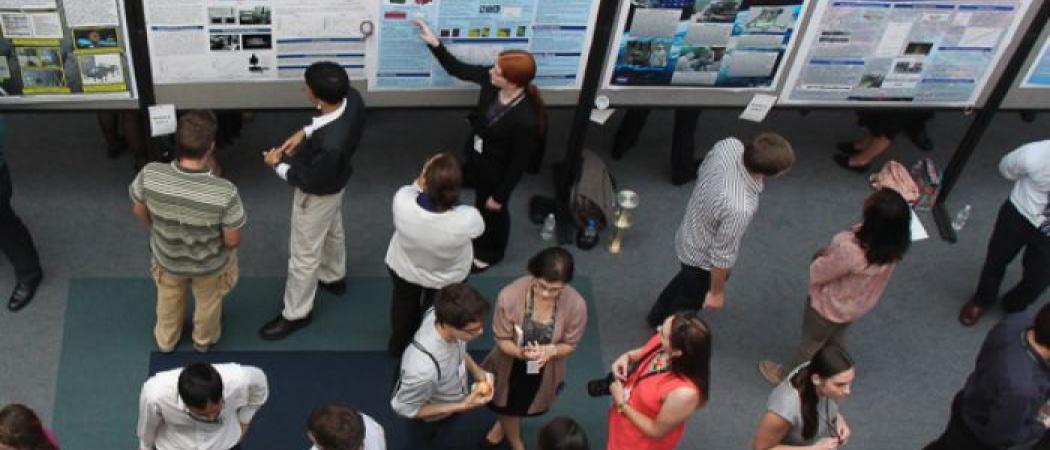
Some more days for participating as a protagonist at EuroScience Open Forum 2020, which will take place from 5 to 9 July 2020 in the district of the Old Port of Trieste (Italy). The deadline for submitting a proposal to Science Programme, Science to Business Programme and Careers Programme has been extended to July 7th 2019.
General participants as well as protagonists from the world of science and technology, innovation, entrepreneurship, politics, communication, and all those who want to bring innovative ideas, strategies and formats, will be able to present their ideas via www.esof.eu. Through the website, you can access the platform where you will find the form to accompany the necessary documentation that you are required to send. The projects must be on one of the themes identified for the 2020 edition and will be selected by international experts. Travel grants are available for proposers or speakers from Central Eastern European countries.
“ESOF is an extraordinary multidisciplinary platform in which science, research and culture are confronted with the needs of society and citizens,” says Stefano Fantoni, Champion of ESOF2020 Trieste. “It is not a meeting point reserved only for scientists, but a unique opportunity in which research, technology and innovation can be compared with each other and by young people for their careers. Science, innovation and sustainability are the three key elements of the event, which today also stands out as the only real point of discussion on the future of the relationship between science and Europe”.
SCIENCE PROGRAMME: FROM FUTURE INFORMATION TO SUSTAINABILITY
There are nine scientific areas that have been chosen by ESOF2020 for defining the programme. Beginning with the “Blue Planet”, viewing water as a heritage of fundamental importance for humanity, to know and to protect. It will then continue with “I Compute, Therefore I am”; that is, the challenges posed by artificial intelligence, 'big data', and ever faster, more powerful, ubiquitous, intelligent and interactive computers. A third theme goes by the name of “Science and Society”, through which it is required to explore the interactions between the world of research alongside other fields of knowledge - from ethics to philosophy and to jurisprudence, its influences, repercussions and criticalities in everyday life. “Breaking Frontiers in Science and Knowledge” will instead stimulate discussion on the most cutting-edge areas in the direction in which research is travelling. “Sustainable Future” concerns the possible technologies and strategies for balanced development and environmental protection. “Nourishing the Planet” encompasses different themes: from food waste to synthetic foods. “Live Long and Prosper” refers to an increasingly targeted, technological, refined and personalized medicine. “Science for Policy/Policy for Science” addresses the issues of scientific diplomacy, research policies, infrastructures, networking and gender issues in the technical-scientific field. Finally, “The Smart City” focuses on the sustainable city of the future.
SCIENCE TO BUSINESS
“At the national and European level, ESOF represents an important opportunity to launch a model region that is able to innovate, creating a system between the world of research and companies, with important repercussions for improving the quality of life of its citizens.” Following the statement of Gianluigi Rozza, Delegate for Research, Innovation, Knowledge, Technology Transfer and Industrial Cooperation of SISSA – Scuola Internazionale Superiore di Studi Avanzati, it follows that the scientific programme of ESOF will include the enhancement of the relationships between research and the business world, unfolding through four themes. It starts with “the 4th Industrial Revolution” focusing on the role of emerging technologies in today's society and economy - from artificial intelligence to the internet of things. The second theme is “Value-Driven Innovation” that centres upon the proposals investigating the value generated by innovation in economic terms, but also from an environmental, social and cultural point of view.
“Public-Private Partnership” encompasses topics concerning the different types of partnerships and collaborations between players in the world of science and research funding, while the last theme “Innovation Ecosystem” explores the interactions that lead academia, companies, current infrastructure providers and policy makers to interact in the complex market ecosystem today.
SCIENCE CAREERS
In a Europe that places young people before major economic, social and environmental challenges of major importance, offering tools to new generations to foster their professional growth cannot fail to play a crucial part in a pan-European event like ESOF. The Careers Programme sets this goal as well as the contributing proposals to be submitted, which are divided into five themes. “Researcher Careers: from Academia to Industry and Back” welcomes all the ideas that outline and examine the success factors of the careers that lead researchers to move from academia to research and development sectors of companies. “Portfolio Careers: Coping with Insecurity and Sequences of Jobs in Research” is rather a theme that focuses on research careers and issues related to the continuity of one's professional pathway. “Horizontal Mobility Career in the 4th Industrial Revolution” concentrates on changes, challenges and career opportunities in the era of the fourth industrial revolution. With “Entrepreneurship Education” the theme of entrepreneurial education will be touched upon through sessions that analyze and evaluate approaches to entrepreneurship education and those that directly involve leading actors in scientific entrepreneurship. Finally, the topic “Active Collaboration” includes the following networking proposals: thematic workshops, sessions and innovative formats that promote a common meeting point between young people, public or private partners, stakeholders from academia as well as the business and political worlds.





 A unique international forum for public research organisations and companies to connect their external engagement with strategic interests around their R&D system.
A unique international forum for public research organisations and companies to connect their external engagement with strategic interests around their R&D system.